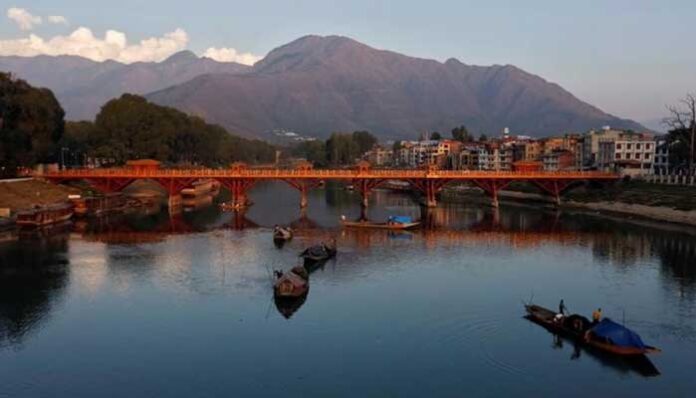PESHAWAR, Apr 26 (APP): Former diplomats and International Relations experts here Saturday reaffirmed that the Indus Waters Treaty (IWT) was a historic water-sharing accord between Pakistan and India and cannot be unilaterally suspended or revoked by either party.
The experts said that IWT is an international binding agreement on both countries brokered and guaranteed by the World Bank (WB).
Signed in 1960, the IWT allocates the waters of the six rivers of the Indus basin between the two neighbours countries.
Under the landmark treaty, India controls the eastern rivers of Ravi, Beas, and Sutlej while Pakistan has rights over the western rivers of Indus, Jhelum, and Chenab.
“The IWT is a historic treaty signed by Pakistan and India and was guaranteed by the World Bank. There is no provision in the IWT for its unilateral suspension of termination,” said Manzoorul Haq, former ambassador, in an interview with APP.
“India has no authority to terminate or suspend the IWT on its own. Any such illegal move would not only be a breach of international law but could also damage India’s global credibility and even be interpreted as an act of aggression against Pakistan.”
Manzoorul Haq emphasized that the treaty’s resilience through multiple conflicts including three wars between the two nuclear armed neighbours is a testament to its robustness and international legitimacy.
“Despite geopolitical tensions between the two countries, the IWT has remained intact, making it one of the world’s most enduring examples of transboundary water cooperation,” he said.
However, Manzoorul Haq criticized India’s construction of several dams and hydroelectric projects on the western rivers in IIOJ&K, which he said had negatively affected Pakistan’s water flow and violated the spirit of the treaty.
Professor Dr. Adnan Sarwar Khan, former Chairman of the International Relations Department at the University of Peshawar, highlighted the treaty’s historical and legal significance, saying “The IWT emerged out of necessity after the Partition of British India in 1947, when disputes over water rights escalated due to the geographical division of river headworks,” he said.
“The World Bank mediated negotiations between the two countries, culminating in this landmark treaty, which continues to provide a legal framework for water security for millions of people.”
He said the Indus is not just a river, it is an identity. An identity of millions of people whose lifeline depends on its flow and consumption. The river predates the formation of both states and has historic value.
He said this helps in sustaining agriculture, livelihood, and ecosystems in Pakistan and India.
Dr. Sarwar added that any unilateral withdrawal or suspension of treaty would trigger international arbitration and possibly a diplomatic backlash. “This isn’t just a bilateral issue; it’s a matter of international law,” he stressed.
Dr Sarwar fears that new dams in Kashmir especially on western rivers will give India strategic control during conflict or drought, affecting Pakistan’s agriculture and water security.
Experts agreed that the treaty is a rare success story in regional cooperation and remains critical to maintaining peace and stability in South Asia and it should not be politicized.
They warned that unilateral suspension of the treaty by India could be consered as an act of war against Pakistan and in such negative situations its repercussion may go beyond borders.
They said that negative policies of the fascist Modi Govt has put peace of South Asia at stake and an another war between nuclear armed countries could bring disastrous for south Asia.
The experts urged international powers especially UNO to put pressure on India to resolve the longstanding issue of Kashmir imperative for durable peace, stability and prosperity in the region.

